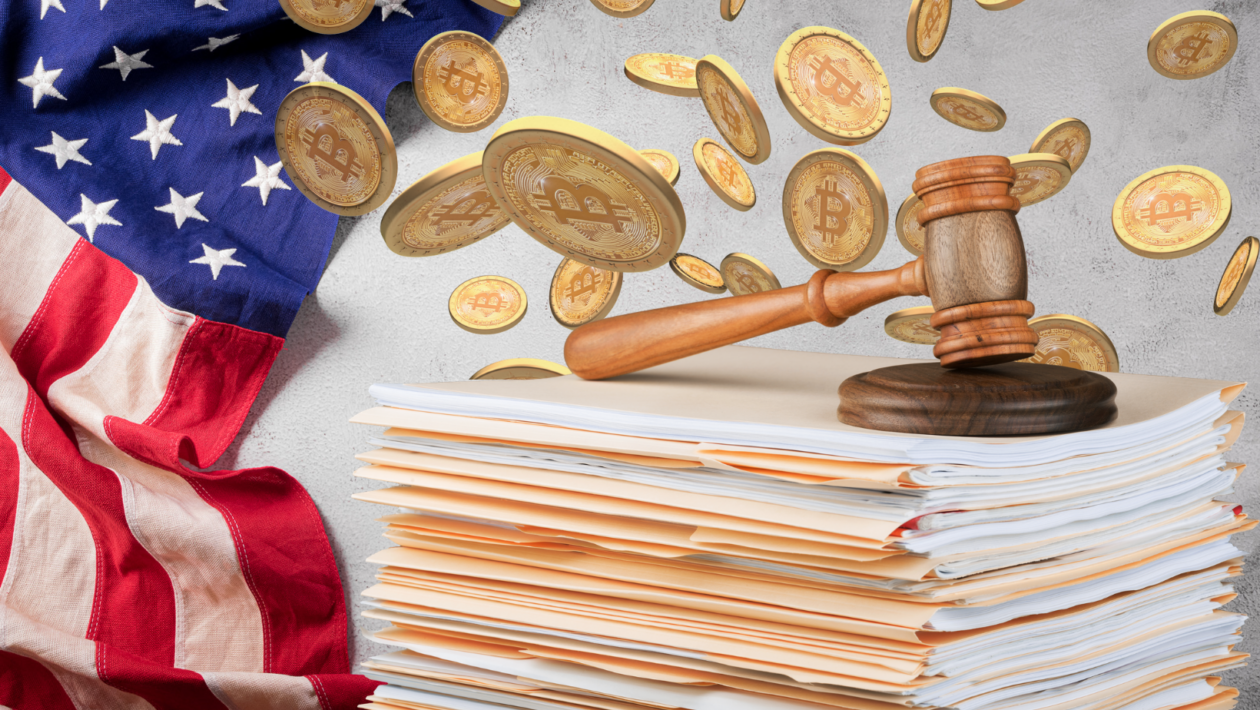Over the past year, blockchain technologies have experienced a surge in news and developments. From notable events such as Sam Bankman-Fried’s arrest to the U.S. Securities and Exchange Commission’s recent lawsuits against Binance and Coinbase, this new frontier has been abuzz with activity.
But despite the many momentous events, regulatory progress in the United States has been sluggish, and federal agencies have relied instead on regulation by enforcement, to the displeasure of many companies that deal with digital assets. Europe, in contrast, is already implementing comprehensive regulations for digital assets, underscoring the need for the United States to catch up. The U.S. judicial system is thus having to step up to interpret digital assets within existing laws, ensuring the country remains relevant in the global legal landscape.
Role of the executive branch
The U.S. executive branch has yet to adopt a definitive stance on digital assets and appears to be relying on Congress to take the lead. In March 2022, President Biden issued an Executive Order titled “Ensuring Responsible Development of Digital Assets,” emphasizing collaboration among government agencies to identify risks and establish a framework for safe and responsible development.
The U.S. Financial Stability Oversight Council’s “Report on Digital Asset Financial Stability Risks and Regulation,” generated as a result of the Executive Order, pleads for regulatory clarity and for enforcement of “the existing regulatory structure.” The Council’s report also calls for steps to stop regulatory arbitrage and the passage of legislation but provides little guidance for activities related to digital assets.
Challenges for the legislative branch
The U.S. Congress has conducted extensive hearings on digital assets, inviting key figures from the legal, business and regulatory sectors. Notably, recent hearings with the chairs of the Securities and Exchange Commission (SEC) and the Commodity Futures Trading Commission (CFTC) have shed light on the diverse opinions surrounding cryptocurrencies and highlighted the legislative gridlock. But to date, none of the 30-plus proposed bills relating to digital assets has advanced beyond the introductory phase, and Congress has yet to pass any substantial legislation in this area. Political considerations, combined with concerns over high-profile incidents and negative headlines, have further complicated the issue. Despite ongoing efforts to gather information, the legislative branch has been hesitant to take concrete action.
Europe’s regulatory lead
In contrast to the United States, the European Union has taken long strides toward regulating digital assets. With its extensive coverage, the E.U.’s Markets in Crypto Assets (MiCA) regulation establishes a comprehensive framework that includes defining digital assets, imposing licensing requirements and outlining regulatory obligations for market participants. Notably, the regulation also tackles crucial issues such as anti-money laundering and counterterrorist financing measures. After four years of revisions, the regulation still amounts to nearly 400 pages. While MiCA falls short in addressing key areas of digital assets such as decentralized finance and lending, it sets a strong foundation for future developments.
The growing prominence of US courts in crypto law
As regulatory progress in the U.S. remains stagnant, the nation’s courts have stepped up to interpret digital assets within the existing legal framework. Numerous cases involving digital assets have been filed in 2023 alone, many involving the SEC and the CFTC. Each regulatory agency has faced criticism from legal professionals, their respective chairs and other federal agencies. The U.S. Chamber of Commerce recently submitted an amicus brief in Coinbase action against the SEC, claiming the agency is causing “regulatory chaos.”
Coinbase’s lawsuit requests that the SEC provide regulatory guidance concerning digital assets. The SEC responded that it is under no obligation to issue new regulations and Coinbase has no standing to sue the agency. Coinbase’s reply argues, in part, that the SEC is withholding regulation because it would diminish its regulation by enforcement actions.
To add to the regulatory chaos, the SEC has filed lawsuits against Binance and Coinbase, two of the largest cryptocurrency exchanges in the world. The respective legal actions vary, but each contains allegations that the exchanges traded cryptocurrencies as unregulated securities, including popular cryptocurrencies, such as Matic (Polygon’s native token), SOL (Solana’s native token) and ADA (Cardano’s native token). Binance, and its co-founder, are alleged to have commingled customers’ funds. Coinbase is alleged to have facilitated crypto transactions since 2019 while evading disclosures required under securities law. Binance and Coinbase have released statements vehemently opposing the lawsuits, setting the stage for another litigious legal battle. Within Coinbase’s statement, Brian Armstrong, Coinbase’s CEO, stated that Congress is needed to “fix the situation.”
Guidance from the judicial system
In the absence of robust regulatory authority, the U.S. judicial system has provided valuable guidance in areas such as insurance, contracts, securities and intellectual property related to digital assets. Noteworthy cases involving trademark and copyright law have garnered global attention, showcasing judges’ role in shaping the digital asset landscape.
But the court system is encountering other issues that could delay adjudications. Courts have been flooded with submissions detailing why, or why not, digital assets should be considered securities. The delay caused by important public input is no less apparent than in the matter of SEC v. Ripple. The case began in December 2020 and approximately 130 attorneys have been involved, to date. The SEC is alleging Ripple sold XRP, its native token, as unregistered securities. A dispositive motion has been pending since October 2022, and the delay with a final ruling may be understandable. The lawsuit is a decisive one and the decision will provide the United States and the world with a boost of clarity.
Absent from the SEC’s lawsuits against Coinbase and Binance were any allegations that XRP is an alleged security. This is likely a strategic move by the SEC to safeguard the agency in the event an adverse ruling is found in its lawsuit against Ripple. The SEC’s classification of an additional 19 cryptocurrencies as securities in the Coinbase and Binance lawsuits diminishes the clarity that blockchain-based companies hoped to receive from the Ripple lawsuit. Furthermore, absent legislation, the lawsuits will prolong the current state of uncertainty and cause the industry to receive clarity in fragments.
Patience pays
The wheels of justice turn slowly for many reasons. While courts decipher the law as it applies to crypto, digital asset companies are looking outside the United States for regulatory clarity. Unfortunately, clarity is unlikely to come to the United States before the next elections, in 2024, but that does not mean the United States will fall behind.
During the early stages of the internet, Europe was the first to enact data and privacy laws. Europe’s first such laws came into effect in 1984, an election year in the United States. The following year, the United States passed its own data protection act. Despite the delay, it clearly did not hinder the United States from retaining and being a leader in technology businesses.
History is likely to repeat itself with respect to digital assets. There is a desire to pass regulation, but good regulations take time. Waiting for the SEC could take significantly longer than for Congress to act, and the regulations from an agency would likely not be as robust as more comprehensive legislation. While Congress and its constituents continue to learn about this developing technology, it will be up to the U.S. court system to bridge current laws to digital assets while helping to navigate these unchartered legal waters.





